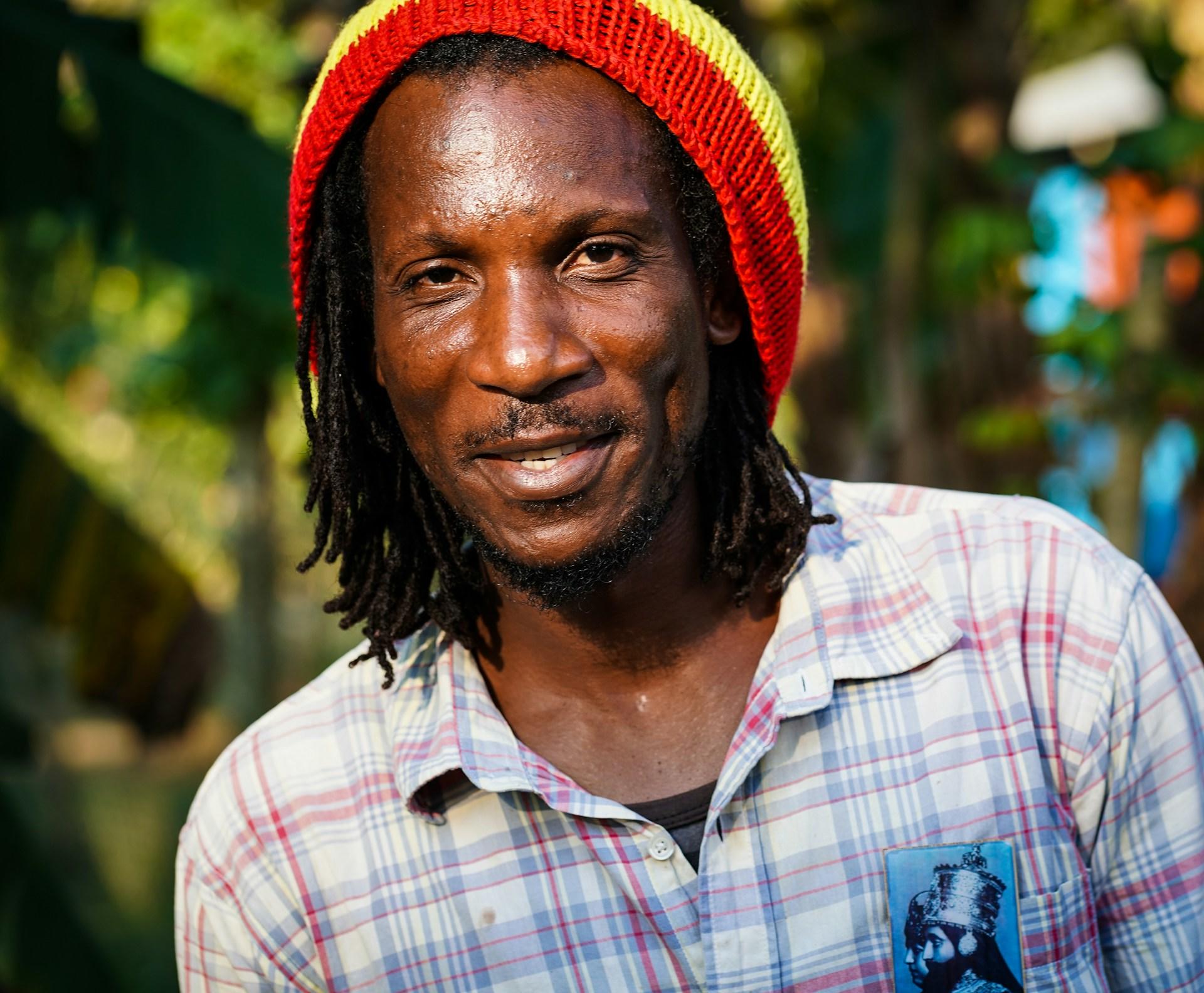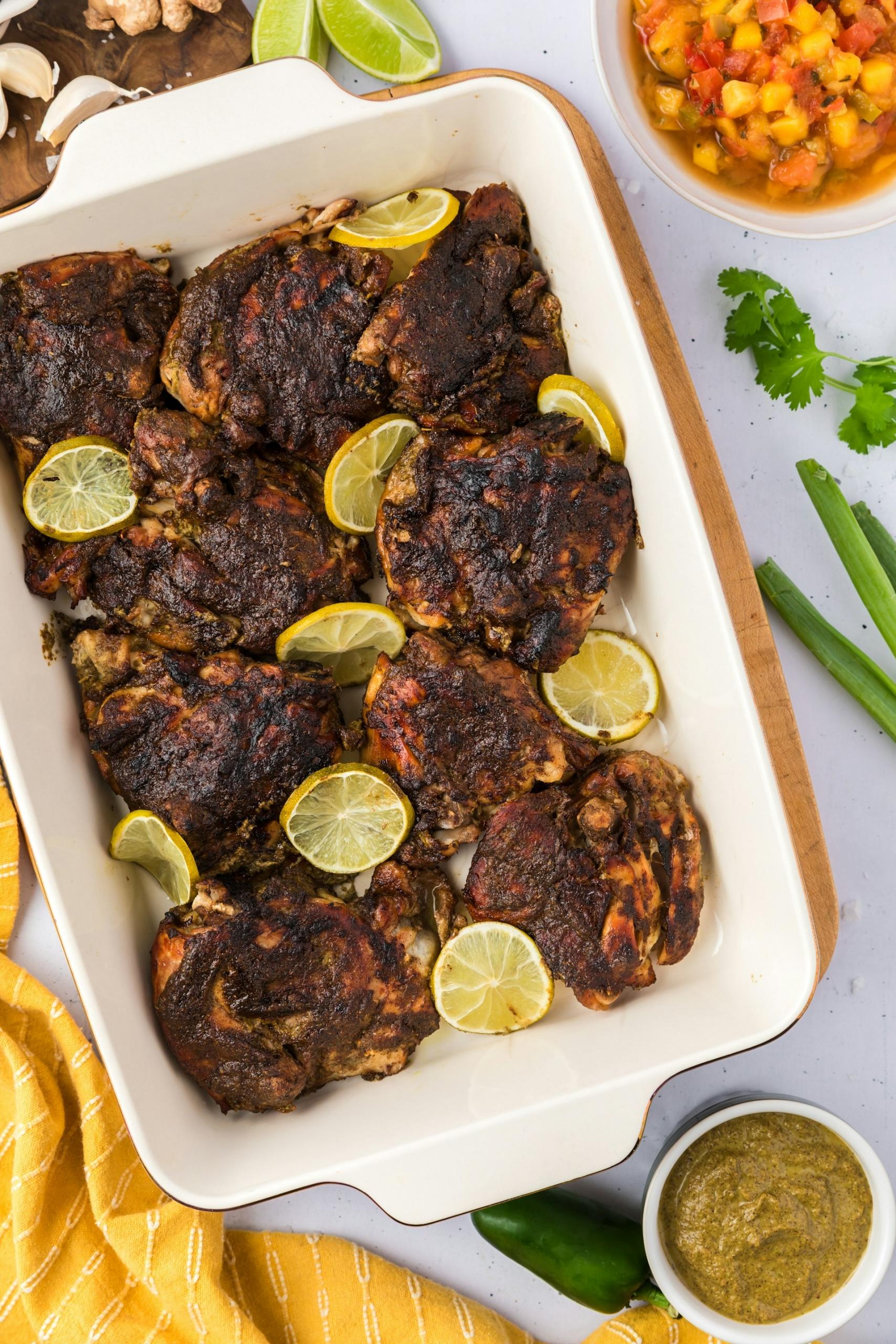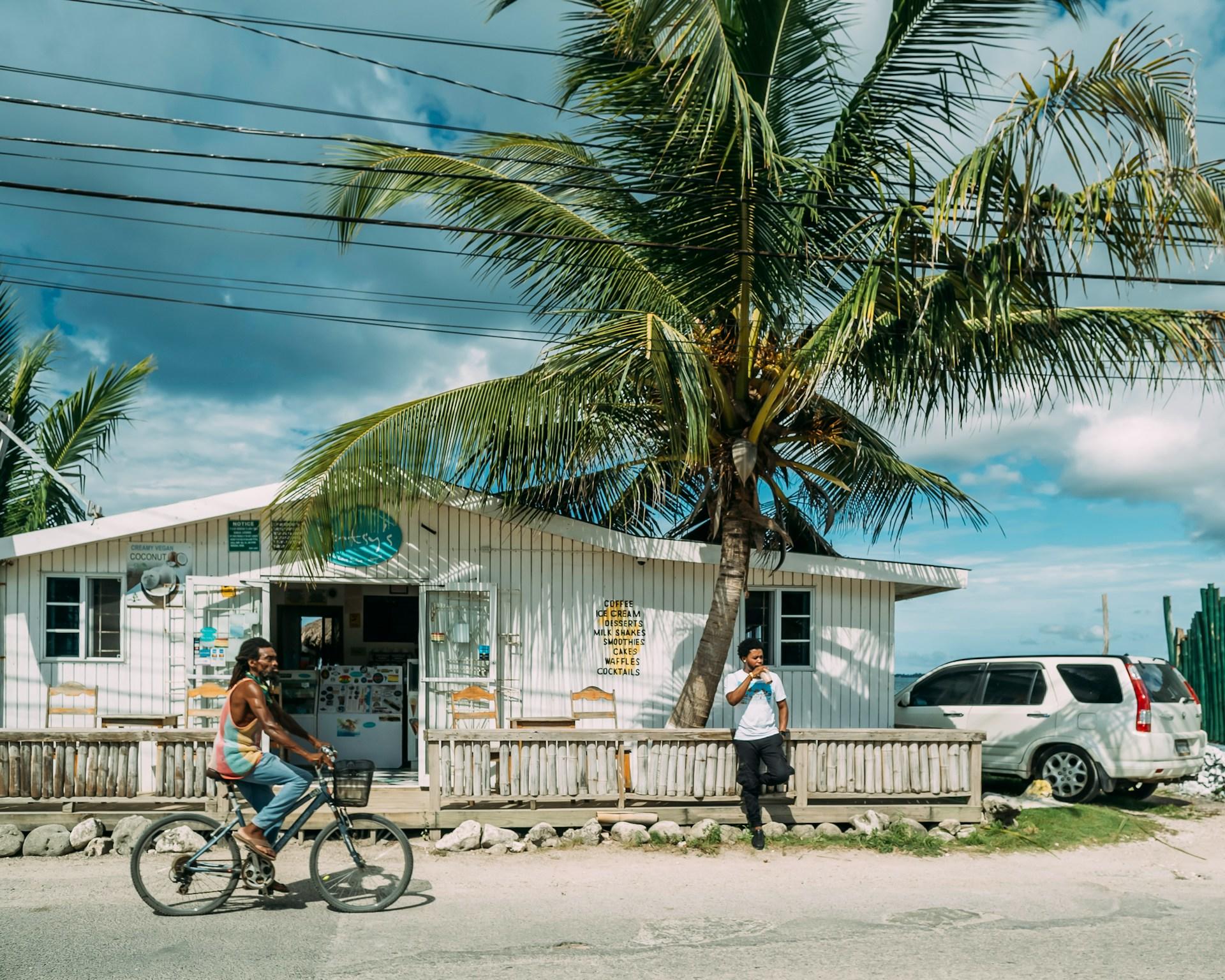A people without the knowledge of their past history, origin and culture is like a tree without roots.
Marcus Garvey, Jamaican activist
Mr Garvey's words mean little without historical context. His land and people had endured centuries of colonisation - first under Spanish rule, and then under, British. In fact, Jamaica's indigenous people had all but disappeared in the colony's early days.
Imported labour - from Africa, China and elsewhere in Asia brought their language with them. These tongues helped shape the Jamaican patois. However, no culture or people changed the Jamaican language as much as the British.

The Story Behind Jamaican English

We all know the story about the Italian explorer that Spain commissioned to 'sail the oceans blue'. To this day, the American English verse about him "discovering the new world" rings in US primary school hallways. The part about him 'meeting Indians' has long been proven false, yet the rhyme persists.
However, evidence exists that Columbus did set foot on various Caribbean islands, including Jamaica. In short order, so did Spanish speculators, after Columbus delivered his report. Here, the story takes a dark turn.
Felled by disease and colonisers' swords, the island's population plummeted. Working the land entailed importing labour - sometimes by indentured servitude; often by force. During the long colonial centuries, Jamaica hosted a melting pot of languages.
They named their land Xaymaca, meaning 'Land of Wood and Water'. Christopher Columbus may have transcribed it as Yamaya in his journals.
In 1661, the British wrested the island from the Spaniards, after three years of battle. They set up a government, and increased the number of plantations. That meant increasing imported labour.
Soon, the Black population outnumbered the white. Irish political prisoners, deported to Jamaica as plantation hands, balanced the demographic ratio.
The British Crown held the island for just over 300 years. In that time, English systems - government, culture, and language, took root. Jamaica became fully independent in 1962, but it remains a Commonwealth of Nations member.
This history explains why English is Jamaica's official language, albeit with Jamaican characteristics. Our summary leaves one loose end, though.
The Irish indentured servants and prisoners thrived in Jamaica. Many secured parcels of land and built homesteads. To this day, the ethnic Irish population in Jamaica is the second-largest, after Afro-Jamaicans. How much of the Irish English dialect these descendants speak - if any at all, we can't say.

What to Know about Jamaican Patois
We do this nation a disservice by stating that English is Jamaica's official language. Even though it's true, it's not the whole truth. British English grammar and spelling underpins the Jamaican government and media, as well as educational and business environments.
In Jamaica, roughly 50 000 people speak English, compared to more than 2.7 million who speak Patois.
However, English is not Jamaicans' first language. Jamaican Patois is. This Creole language blends aspects of Jamaica's imported languages through the centuries. In this respect, Jamaican Patois is a lot like Nigerian Pidgin.
A well-tuned ear may pick out shades of French, Spanish, Mandarin, Portuguese, and Scottish. Arawakan, a Jamaican indigenous language, helps shape Patois, too. Irish English and various African languages dominate, as these populations are Jamaica's largest ethnicities. Recently, American English has had a growing influence on Patois.
Considering the blend of languages that makes up Jamaican Patois, it's clear to see where the musical Jamaican accents comes from.
Considering its roots, Patois - or Patwa, as it is called, is quietly treated as the 'second-class' language. For centuries, it existed only as an oral language. Today, linguists and writers are working to establish it in writing. Jamaicans favour the idea of Patois becoming their nation's co-official language but, so far, the government resists their efforts.
Jamaica's Minority Languages
What languages (besides Patois) do Jamaicans speak at home? The Taino people who, centuries ago, evaded colonial capture preserved their culture and language. Today, their descendants speak Arawaken, the nation's only living indigenous language.
The second 'independent' language in Jamaica is Kromanti, the tongue of runaway slaves. They found their way to Moore Town, a community in the mountainous region of East Jamaica. These Maroons descendants keep their ancestors traditions alive.

Jamaican English Grammar
Jamaican children grow up speaking Patois, only learning Jamaican English once they start school. Their English curriculum largely embraces British English spelling and grammar rules. However, as noted above, American English influence is growing.
Jamaican English is this country's only official language. Patois is considered a national language, not an official language.
Like the Singaporean Singlish dialect, local language varieties impact Jamaican English pronunciation. The R-sound often doesn't feature, unless that letter comes before a vowel. Diphthongs, also called gliding vowels, are either muted or merged. That makes similar-sounding words like 'fair' and 'fear' sound the same.
Explaining the delightful Jamaican language sounds in such clinical terms does not do this language justice. Let's listen to a Native Jamaican Patois speaker demonstrate the Jamaican accent, instead.
Words and Phrases to Know in Jamaican English
For its relative size - economic, population and geographical, this island nation makes a powerful cultural impact. It gave the world reggae music and Rastafarian beliefs, dazzling fashion and food to die for. And its lilting, sing-song quality, so much like Indian English, is a treat to hear.
This country's cultural exports aren't the only reason why people love all things this nation offers. Large Jamaican communities around the world make their culture more accessible.

Some Jamaican slang words already see heavy traffic. For example, 'Nuff' - a shortened 'enough', is popular in American English. Other words, like 'bashment' and 'Rhaatid!' convey excitement and/or pleasure. The first may also mean 'party' - a bash; 'Rhaatid!' means 'Wow' and other expressions along those lines.
The standard local name is the Rock. 'Ja', 'Jamrock' and 'Jamdown' are slang names. In Patois, the island is called 'Jamdung'.
'Zeen' and 'Irie' are two of the most important words to know. They often appear as words of agreement or affirmation. For instance, if someone asks: "How are you?" - or, in Patois: "How yuh stay?", 'Mi irie' is a suitable answer. "Me dey ya, you know" would be more flavourful; both responses mean 'All's well'.
Granted, these expressions have not found their way into mainstream English usage. Jamaica enthusiasts happily use them as one-offs, giving the country of origin full credit. 'Ya mon', on the other hand, is wildly popular, thanks to reggae's broad reach.
Anyone riding a crowded bus or train likely wishes other riders wouldn't take up so much room. We consider it rude to tell others to shrink themselves. However, Jamaicans have no problem saying 'Small up yuhself' - literally, 'make yourself smaller'.
You mustn't confuse that phrase with 'Mash up' - something destroyed through external forces. A car accident, or a house levelled by a tornado are examples of 'mash up'. This phrase works as a verb and an adjective, expressing shock, surprise, and disbelief. This definition is polar opposite of the Australian English definition of 'mash-up'.
Jamaican Idioms
the Jamaican language and culture doesn't get enough credit for its wisdom and common sense. We all appreciate the laid-back vibe, but give little thought to where that serenity comes from. Jamaican idioms are the lessons we need.
Finger neber say "look here," him say "look yonder."
This sentence is easy to translate. Word for word, it is: 'Finger never says “look here,” he says “look yonder”. It adds a layer of meaning to the standard English 'Pot calling the kettle black', and makes the fault personal. In essence, it expresses that people typically don't point to their own faults.
Peacock hide him foot when him hear 'bout him tail.
This idiom follows the spirit of the first one. Its translation is: 'The peacock hides his foot when he hears about his tail.' As we marvel over the peacock's beautiful feathers, the bird strives to hide its ugly feet. It's true that a proud person won't allow their weaknesses on display.
When chubble tek yu, pikney shut fit yu
This idiom is a bit harder to make sense of. Translated, it reads: 'When you find yourself in trouble, a child’s shirt fits you.' The sense behind it lies in accepting any degree of help when one's in need, even if it's not enough to resolve the crisis.
Mischiff kum by de poun’ an’ go by de ownse
'Mischief comes by the pound and goes by the ounce', this phrase's translation, means it's hard to recover from damage done. To avoid having to 'wear a child's shirt', it's best to not make mischief. Or stop it before it causes trouble.
Wan han wash de oda
Many of these idioms don't feature in English dialects worldwide, but this one comes close. It means 'One hand washes the other'. You likely know many idioms in English that mean the same thing.
Summarise with AI:















